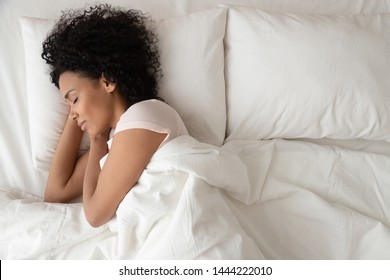Our sleep is likely affected by any change to our routine, structure or environment – I know mine is. If you are having trouble falling asleep, staying asleep or even going to sleep, take two minutes now to refresh one of these strategies to adopt as your own superpower and you’ll be on your way to a good night’s rest.
Sleep is foundational in challenging times: it helps the immune system fight off infection. Getting too little or too much sleep can have a big impact on how you perform daily tasks, both complex and ordinary. Good mental health and sleep are closely aligned. Have you heard that sleep acts like a dishwasher on your brain? Each night it cleans and recycles so that you start fresh each day and your creativity and productivity is firing at optimal levels. Allowing the full cycle to run is essential because our ability to learn, retain information, and memory skills are dependent on our ability to get both quality and adequate sleep.
Are you noticing an increase in your appetite in the past month? Don’t automatically attribute it to stress-eating. You have two hunger hormones – one that stimulates appetite and one that decreases it. When the body is sleep-deprived, the levels spike and fall in the wrong directions, leading to an increase in hunger. And with sleep deprivation, comes lower energy, so you may be a little less motivated to exercise, then you may feel sluggish or start to gain a little weight. For both your mental and physical health, let’s consider some tips for better sleep.
- Smart sleep hygiene includes first taking a look at your sleep space is it cool — as in temperature – around 68 degrees is best. Is your bedding appealing and comfortable? What about your pillow? Is it providing good neck support?
- Next consider electronics. Turning off all phones, TVs, and laptops, SIXTY minutes before bed is a well-known guideline. We understand this because the blue light in these devices tells your brain waves to stay awake. But new research also tells us that content is keeping us awake we’re tired, but we procrastinate from falling asleep by staying on our devices. Message: stop scrolling on your phone to lull you to sleep.
- Let’s move on to a consistent bedtime. This gives you the best chance for the 7 to 9 hours of sleep recommended for adults. Try to resist the urge to stay up late or sleep in!
- And if you do lie awake, it’s good to get out of bed, find a place with dim lighting, and pass time until you are sleepy with a physical book, breathing exercises, or listening to music. And turning a clock away from sight can be helpful. If you like to nap during the day, a 30-minute nap is OK –unless you have trouble sleeping at night, then resist the urge to nap.
- It’s common to have anxious thoughts once you get into bed, and if this is preventing you from falling asleep, you might try physically writing these thoughts down earlier in the day to relieve your mind from thought-racing at night.
- Finally, establishing a wind-down ritual will signal your brain that you are transitioning to sleep. In stressful times, a hot shower, a few minutes of mindful meditation, music or gratitude journaling can be beneficial…and dimming the lights will help.
- As for medications and natural supplements, some medications can affect sleep, so check with your doctor on your prescriptions. And do some research on natural supplements like melatonin for one that may be right for you.
- Alcohol acts like a sedative when it comes to your sleep. It might put you to sleep, but it won’t allow you the most restful of sleep — REM sleep — where you get the most benefit for brain health and your immune system.
So now you know sleep can be a powerful tool during challenging times – it improves your mental and physical health, helps manage your weight, aids in being more productive, and improves your memory. With a good night’s sleep, you feel energetic and your mood is improved. I challenge you to try one strategy tonight to take on as your own superpower for sleep.


